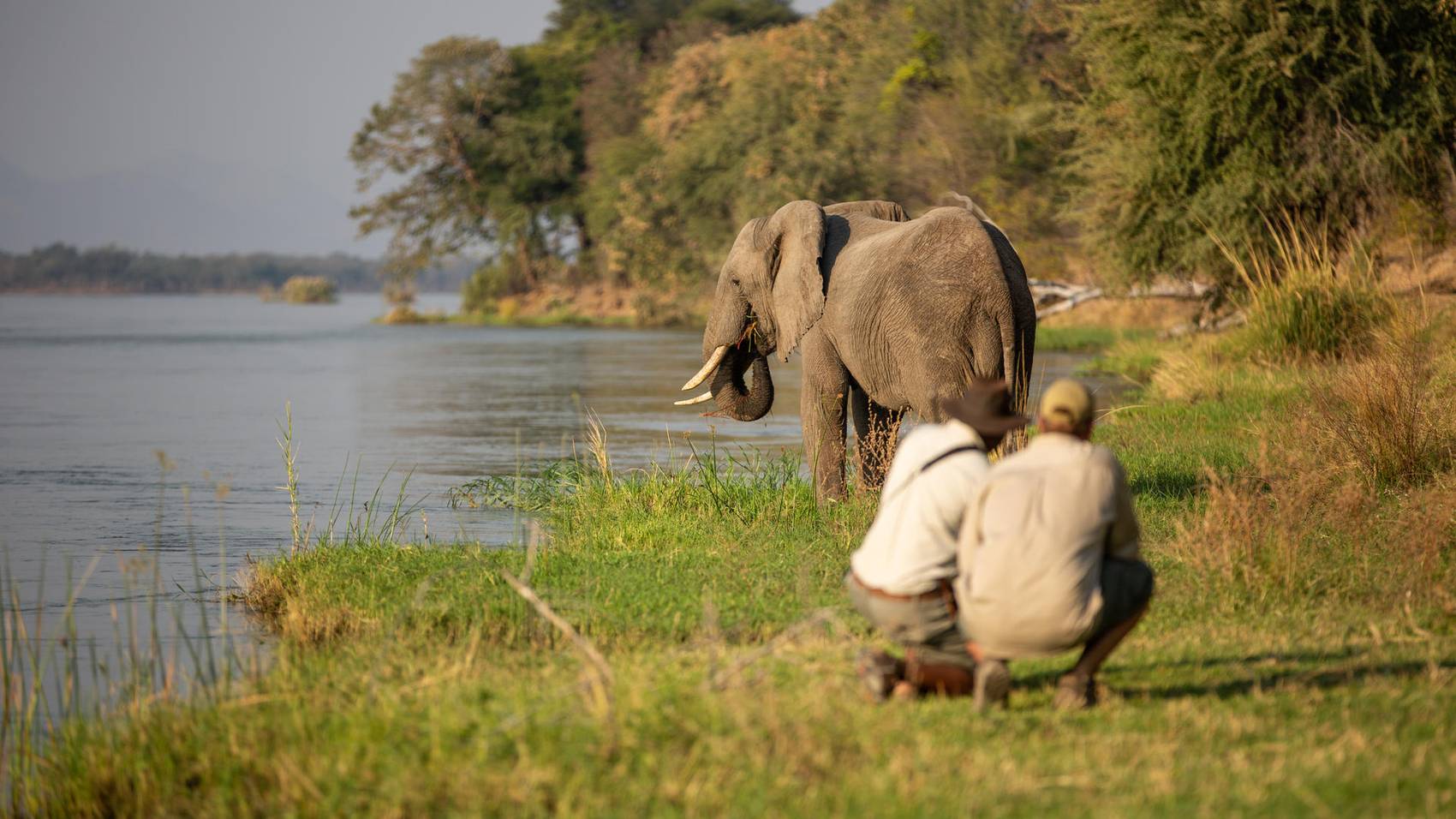Tucked along the Zambezi River in northern Zimbabwe lies the remote and wildlife-rich Mana Pools National Park. Inscribed as a UNESCO World Heritage Site in 1984, this biodiverse wonderland beckons adventurers seeking walking and canoeing safaris unlike any other.
Paradise for Africa’s Iconic Wildlife
As one of the most pristine parks in Africa, Mana Pools contains one of the highest concentrations of wildlife on the continent. Its river frontage, expansive floodplains, and wooded hills sustain an abundance of animals including the Big Five – elephants, lions, leopards, buffaloes, and rhinos.
The best time to visit is during the dry winter months between May and October when wildlife congregates around the river. Large herds of elephants share the shorelines with pods of hippos, while Nile crocodiles bask lazily in the sun. Above, vibrant flocks of carmine bee-eaters swoop and dive across acacia woodlands as stealthy lionesses stalk their prey through the golden grasses.
Walking Safaris Bring You Close
Mana Pools offers a rare opportunity to experience the African bush on foot. Highly-skilled guides lead small groups on walking safaris through remote territories otherwise unreachable by vehicle. Encounters with wildlife feel thrillingly intimate rather than observed from behind a car window. Guests may spot packs of wild dogs on the hunt, massive old buffalo bulls in the bush, or the fresh tracks of a leopard marking its territory at the water’s edge.
Paddle Beside Hippos and Crocodiles
For the ultimate adventure, hop into a simple canoe and paddle along the legendary Zambezi River as ancient explorers once did. Maneuver silently through flooded plains and around scenic ox-bow lakes, watching wild animals drink and graze mere feet away along the shorelines. Both walking and canoeing excursions connect you to Africa’s landscapes and wildlife in profound ways that traditional safari vehicles cannot.
Isolated Camps Provide Authentic Luxury
Two small thatched-roof camps, Ruckomechi and Little Ruckomechi, provide a base for wilderness activities inside the park. Chikwenya Camp rests along its far eastern boundary. Accommodations blend seamlessly into the untamed surroundings with modest luxury.
Comfort here includes viewing exceptional wildlife up close on foot, dining under a blanket of stars, and listening to spine-tingling lion roars echoing in the darkness. The camps’ simplicity contrasts vividly with most safari lodges found elsewhere.
When to Go and Travel Planning
Inscribed as UNESCO World Heritage Site in 1984
Park size = 6,766 km (2,613 mi)
450 bird species including the vibrant carmine bee-eater
100 mammal species like the African elephant
Best visiting months: Dry season from May-October
3 small wilderness camps dotted within park boundaries
Specialized safari outfitters like Wilderness Air provide seamless travel services to access Mana Pools, including charter flights, detailed itineraries, and complete park permits. They can arrange custom journeys to explore the wider Zambezi region with extensions to Victoria Falls, the wildlife-rich Okavango Delta, and beyond. Popular routes include Southern Africa Safaris, Rivers & Deltas experiences, and Bucket List Botswana adventures.
Follow Your Heart to Africa’s Wild Places
As tourism rebounds across Africa, sustainable and thoughtful travel matters now more than ever. Mana Pool’s expansive wilderness provides rare glimpses into untamed landscapes and wildlife behaviors impossible to witness elsewhere. Yet its fragile beauty remains exceptionally vulnerable without vigilant human stewardship.
Whether paddling a canoe along peaceful floodplains or walking nearly eye-to-eye with wild elephants in timeless forests, remember that we all play an important part in leaving the world a better place with each passing year. Promoting the preservation of one of Earth’s last Edens ensures it thrives for future generations.
Ultimately, places like Mana Pools exist as much in our dreams and optimistic visions as they do on maps. Close your eyes and imagine standing in Africa’s sublime wilderness, with your feet rooted firmly in the red soil.


